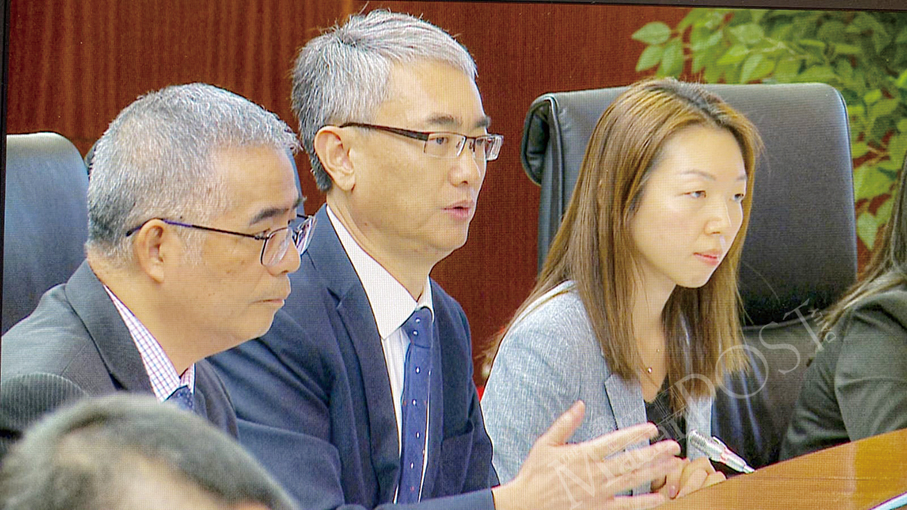The Legislative Assembly (AL) yesterday passed a government-initiated bill streamlining civil procedures on evicting defaulting tenants.
The bill amends eviction rules listed in the Civil Procedures Code. The amended civil procedures on eviction will take effect on March 1 next year.
The newly amended procedures aim to enable landlords to evict tenants who refuse to pay their rent and to move out, within a shorter period of time than now.
The bill’s outline was passed during a plenary session of the legislature in May, after which the bill was reviewed by its 1st Standing Committee, before it was resubmitted to yesterday’s plenary session, which Secretary for Administration and Justice André Cheong Weng Chon attended, when it was voted on article-by-article in its second and final reading.
The government has said that some landlords are affected by the situation where their tenants “intentionally do not cooperate, with the aim of avoiding paying their rent”, rendering it difficult for the landlords to recover rent arrears.
The government has pointed out that the current civil procedures on eviction take a relatively long time, because of which the affected landlords are unable to repossess their units within a “reasonable” period of time.
Currently, the affected landlords are required to hire a lawyer for their civil procedures to evict defaulting tenants, while according to the streamlined civil procedures, which will take effect on March 1, 2025, it will not be mandatory for the landlords to hire a lawyer to tackle the issue.
The bill’s initial version proposed that the affected landlords would be able to benefit from the streamlined procedures if the tenants were at least five months behind in paying their rent. However, after the legislature’s committee review, the government has amended the rule and submitted the bill’s new version, i.e., the one passed yesterday in its second and final reading, according to which the affected landlords will be able to benefit from the streamlined procedures if the tenants are at least three months behind in paying their rents.
In order to benefit from the streamlined procedures, the respective landlords will be required to notify the tenants in writing about their failure to pay their rent, according to the newly amended civil procedures on eviction.
Moreover, only landlords who receive their rent payments by bank transfers will be covered by the streamlined procedures.
During the legislature’s committee review of the bill, government officials noted that in addition to a formal written letter including those sent by registered post, the respective landlords who send an email or even messages on an instant messaging app will also be regarded as fulfilling the requirement to notify the defaulting tenants.
According to the newly amended civil procedures, the government will set up a database allowing prospective landlords, through real estate agents, to check whether their prospective tenants previously defaulted on paying their rents.
During yesterday’s plenary session, several lawmakers voiced their support for the new civil procedures on eviction, including Ron Lam U Tou who urged the government to strengthen its promotional campaigns for the new eviction rules, ensuring that prospective landlords and tenants will have a better understanding of the matter.

Flanked by officials under his portfolio, Secretary for Administration and Justice André Cheong Weng Chon addresses yesterday’s plenary session in the legislature’s hemicycle. – Photo: William Chan








